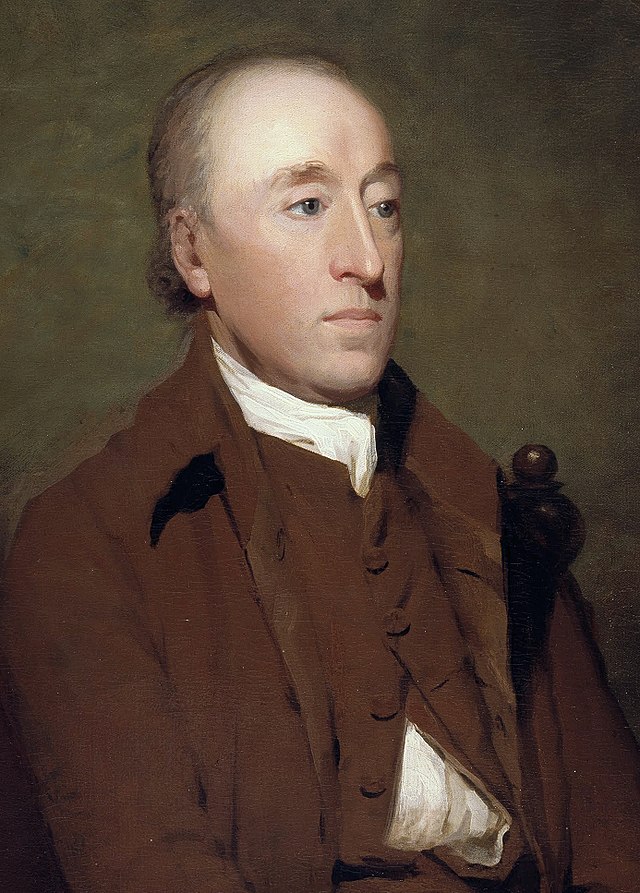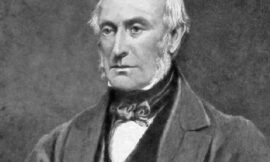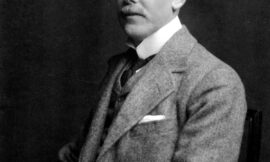James Hutton (1726-1797) was a pioneering Scottish geologist, chemist, naturalist, and experimental farmer, often celebrated as the “Father of Modern Geology.” His revolutionary theories and meticulous observations laid the groundwork for our understanding of the Earth’s geological processes and its ancient history.
Early Life and Education
Born in Edinburgh on June 3, 1726, Hutton was the son of a merchant and city treasurer. He showed an early interest in science and, after attending the Royal High School of Edinburgh, he enrolled at the University of Edinburgh in 1740, initially studying the humanities and law. However, his passion for science led him to pursue medicine, which included a broad education in natural sciences. Hutton continued his medical studies in Paris and Leiden, where he earned his Doctor of Medicine degree in 1749.
Career and Contributions
After briefly practicing medicine, Hutton returned to Scotland to manage the family farm in Berwickshire. This period of his life was crucial, as it allowed him to observe natural processes firsthand and develop his interest in geology.
Agricultural Innovations: Hutton applied scientific principles to farming, experimenting with new agricultural techniques and improving soil fertility. These practical experiences informed his later geological theories.
Geological Observations: Hutton’s observations of soil formation and erosion on his farm sparked his interest in the Earth’s processes. He began to study rock formations and landscapes extensively, leading to his groundbreaking geological theories.
The Theory of Uniformitarianism
Hutton’s most significant contribution to geology is the theory of uniformitarianism. This theory posits that the geological processes observed in the present, such as erosion, sedimentation, and volcanic activity, have been occurring in the same manner throughout Earth’s history. This idea was revolutionary because it suggested that the Earth was much older than the few thousand years proposed by prevailing biblical interpretations.
Key Concepts:
- Deep Time: Hutton introduced the concept of “deep time,” recognizing that geological processes occur over immense periods, far beyond human history. This was a fundamental shift in understanding Earth’s age.
- Gradualism: Hutton argued that slow, continuous processes, rather than sudden catastrophic events, shaped the Earth’s surface. This idea contrasted sharply with the then-dominant catastrophism theory.
Hutton’s Unconformity
One of the most compelling pieces of evidence supporting Hutton’s theories is found in Hutton’s Unconformity, a geological feature near Jedburgh in the Scottish Borders. This site clearly shows two distinct sets of rock layers: older, nearly vertical greywacke sandstone from the Silurian period overlain by younger, gently sloping red sandstone from the Devonian period. The contact between these two sets of layers illustrates a significant gap in the geological record, highlighting periods of erosion and deposition that span millions of years.
Publications and Impact
In 1788, Hutton presented his ideas in a paper to the Royal Society of Edinburgh, titled “Theory of the Earth.” He later expanded this work into a two-volume book published in 1795. Despite initial resistance from some contemporaries, Hutton’s ideas gradually gained acceptance and profoundly influenced the field of geology.
Legacy:
- Charles Lyell: Hutton’s work significantly influenced geologist Charles Lyell, who further developed and popularized the principles of uniformitarianism in his seminal work, “Principles of Geology” (1830-1833). Lyell’s advocacy helped establish Hutton’s ideas as foundational to modern geology.
- Modern Geology: Hutton’s theories form the basis of modern geological science. His recognition of deep time and gradualism are central to understanding Earth’s dynamic history.
Personal Life and Death
Hutton remained active in scientific circles throughout his life, maintaining close friendships with notable figures such as chemist Joseph Black and economist Adam Smith. He continued his geological research and writing until his health declined. James Hutton died in Edinburgh on March 26, 1797, leaving behind a legacy that would forever change the way we understand our planet.
Conclusion
James Hutton’s pioneering work and his theory of uniformitarianism revolutionized the field of geology. By introducing the concepts of deep time and gradualism, Hutton provided a framework that has enabled scientists to unravel the complex history of the Earth. His observations at sites like Hutton’s Unconformity in Jedburgh stand as enduring testaments to his contributions, making him one of the most influential figures in the history of science.



